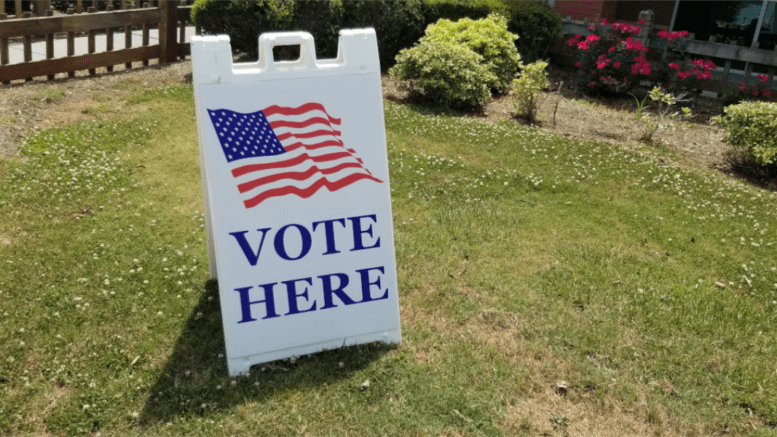by Anthony Michael Kreis, Georgia State University, [This article first appeared in The Conversation, republished with permission]
A federal appeals court in Arkansas ruled on Monday, Nov. 20, 2023, that only the federal government – not private citizens or civil rights groups – could sue to enforce the 1965 Voting Rights Act.
This decision will likely be appealed to the Supreme Court – but if it stands, it could gut individual people’s and civil rights groups’ legal right to fight racial discrimination in voting.
The Conversation spoke with Anthony Michael Kreis, a scholar of constitutional law, democracy and civil rights, to better understand the significance of this court ruling.
What is most important for people to understand about this court decision?
There are currently two ways to safeguard the Voting Rights Act and try to enforce it in court. One is through the federal government and the Department of Justice. The other is private groups, often civil rights organizations, that try to enforce the Voting Rights Act when there is a violation and people are not being given equal opportunity and the ability to vote.
I believe it is important that groups like the American Civil Liberties Union, or ACLU, and the National Association for the Advancement of Colored People, or NAACP, can go to court and litigate voting rights questions. Part of the reason is that the Department of Justice is a government office with limited resources and a finite capacity to assess all of the different jurisdictions where voting takes place. It also requires the enthusiastic support of Justice Department leaders – and this cannot be guaranteed from administration to administration.
These private groups have a broader reach in terms of being able to document what is happening locally and at the state level – and whether people’s voting rights are possibly being violated.
A ruling that private groups can no longer file lawsuits related to the Voting Rights Act removes key voting rights protectors from their roles – primarily of stopping discriminatory rules or legislation that either deprive people of their right to vote or dilute the full force of their vote.
How often do private groups file lawsuits to enforce the Voting Rights Act?
The NAACP or the ACLU regularly file these lawsuits. Sometimes there have been multiple private groups filing lawsuits at the same time. This happened in 2021, when a new election law in Georgia made it harder for some people to vote by limiting access to drop boxes and making it also more challenging to get an absentee ballot mailed. This law is still under litigation.
The NAACP has also brought lawsuits against voting rights questions in Alabama, like whether people should have to present a photo ID in order to vote. Generally, these lawsuits have had a great deal of success at protecting people’s right to vote, especially the rights of Black people and other minorities.
It is because they have been so successful that some conservative people who would prefer to limit voting rights in a democracy, rather than expand them, have gone after organizations’ ability to file these lawsuits.
How has the Voting Rights Act been interpreted so far?
Over the years, numerous courts, including the 5th, 6th and 11th circuits, have taken up this issue. These courts have determined that you cannot plausibly read the Voting Rights Act in its totality and not see there is a clear, private right of action for groups like the ACLU to go to court.
There is a reason why this issue of private groups filing voting rights lawsuits has kind of become a new fad. In a Supreme Court case in 2021, Justices Neil Gorsuch and Clarence Thomas both raised this question of whether this should be allowed.
Now, the 8th Circuit Court has taken that cue and ruled that nongovernmental groups do not have the right, under the Voting Rights Act, to sue states for voting rights violations. The reasoning is that Congress never explicitly provided this right in the act’s text.
But the Supreme Court has informally recognized for decades that Congress recognizes the right of private groups to take action. And while Congress has amended the Voting Rights Act through the years, it has never tried to curtail private lawsuits. This confirms the long-understood premise that Congress empowers people and groups other than the federal government to bring voting rights litigation under the 1965 law.
How does this ruling shift the legal landscape on this issue?
Most of the appellate courts that have addressed this issue head-on have easily batted away arguments about private groups not being able to file lawsuits, because they have found them to be so implausible that they are not worth their time to analyze in a deep and serious way.
I think this ruling is part of a systemic attack against voting rights in the U.S. at an especially precarious time for American democracy’s health. This court ruling will likely go to the Supreme Court, but if the Supreme Court affirms the decision, only the Department of Justice could enforce voting laws in a meaningful way. That is exceptionally dangerous and challenges the principle that all eligible voters get to have their voices heard in a democracy.
Anthony Michael Kreis, Assistant Professor of Law, Georgia State University
This article is republished from The Conversation under a Creative Commons license. Read the original article.
